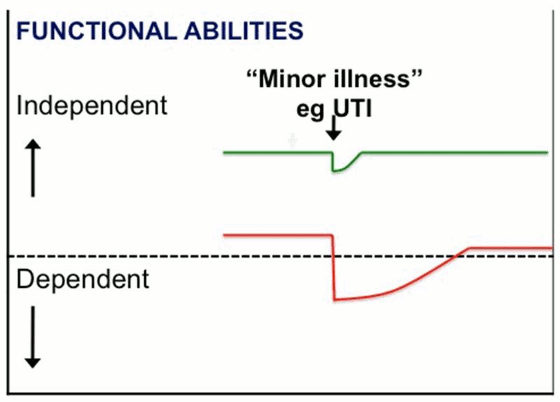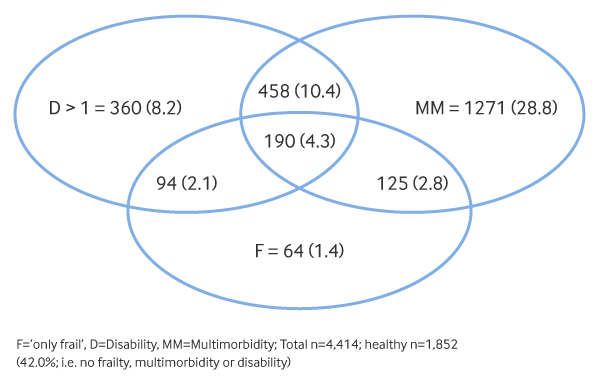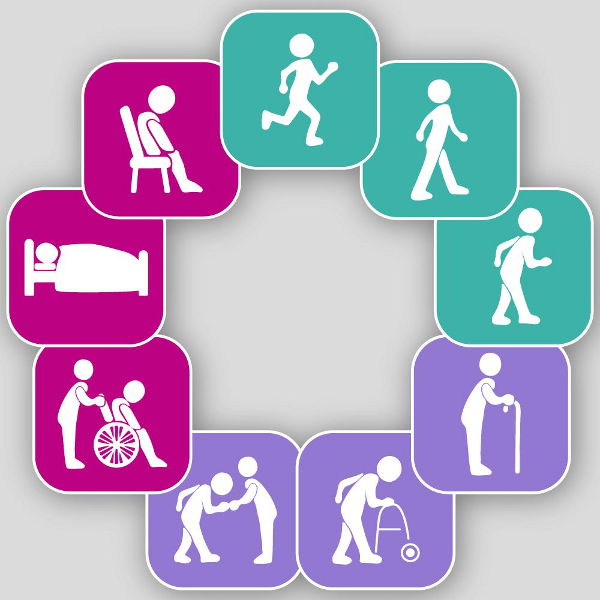Summary
Details
- Why do people become frail?
- Why is it important to recognise frailty?
- Impact of living with frailty
- Potential for improving outcomes
- Models of frailty
- Assessment in the emergency department
- Acute hospital setting: deciding on the most appropriate setting for care
- Acute hospital setting: assessment of common frailty syndromes
- Acute hospital setting: falls
- Acute hospital setting: delirium
- Acute hospital setting: ongoing care
- Acute hospital setting: deconditioning
- Acute hospital setting: preventing delirium
- Acute hospital setting: nutrition
- Acute hospital setting: perioperative care
- Acute hospital setting: medication optimisation
- Acute hospital setting: advance care planning and urgent care planning
- Community setting: identifying frailty
- Community setting: living with frailty/ageing well
- Community setting: Comprehensive Geriatric Assessment (CGA)
- Community setting: crisis intervention
- Community setting: assessment of common frailty syndromes
- Community setting: continence issues
- Community setting: falls/syncope
- Community setting: medication optimisation
- Community setting: advance care planning
Contributors
Authors
Dr Polly Brown, BSc MBBS MRCGP
GP, Practice Lead for Frailty
Sussex
UK
Disclosures
PB was the editor of some content in BMJ Best Practice.
Acknowledgements
PB would like to acknowledge Dr David Hunt for his contribution to the scope of this topic.
Peer reviewers
Professor Simon Paul Conroy, MB ChB PhD
Consultant Geriatrician
Central and North West London NHS Foundation Trust
London
UK
Disclosures
SPC is paid as clinical lead for the national frailty improvement collaboratives and in receipt of related research income, mainly from National Institute for Health and Care Research. SPC is the author of one or more references cited in this topic.
Professor Jay Banerjee, MBBS MSc FRCS FRCEM
Consultant in Geriatric Emergency Medicine
University Hospitals of Leicester NHST
Honorary Professor
University of Leicester
Leicester
UK
Disclosures
JB is co-editor of the 'Silver Book II' (British Geriatrics Society, 2021) and co-author 'Silver Book' (British Geriatrics Society, 2012). JB has undertaken research for: the Economic and social research council into frailty in older people from black and minority ethnic communities; Health Service Executive Ireland for research outcomes in older people; and PhD co-supervision on hospital acquired harm in older people. JB has lectured on Geriatric Emergency Medicine in national and international conferences. JB is a director of Jay Banerjee Consultancy Ltd. work includes commissioned delivery of LeicGEM courses in UK/Europe, clinical lead for NHS Elect, and patient safety courses for Loughborough University. JB is the author of one or more references cited in this topic.
Dr James Alexander Adams, BSc MBBS FRCP MSc
Consultant Geriatrician
Chief of Service for Frailty and Community Services
Royal Surrey County Hospital NHS Foundation Trust
Guildford
UK
Disclosures
JAA declares that he has no competing interests.
Use of this content is subject to our disclaimer


